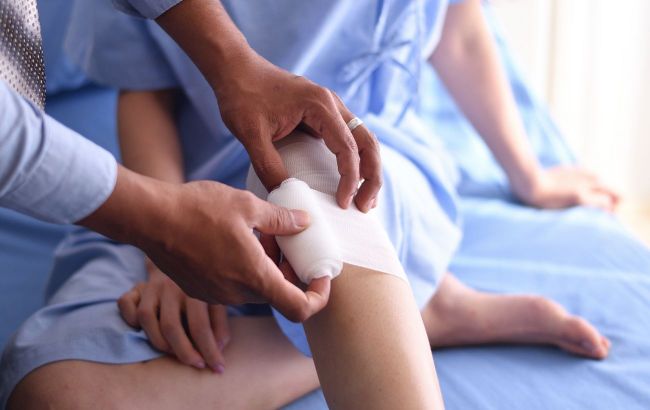Scientists refute decades-old myth about wound disinfection methods
 What antiseptics should not be used to treat wounds (photo: Getty Images)
What antiseptics should not be used to treat wounds (photo: Getty Images)
Hydrogen peroxide and alcohol are common remedies for treating wounds that have been in use for decades. However, modern science has proven that their effectiveness is overrated and may even hinder wound healing.
Recent studies in dermatology and medicine have questioned the efficacy of hydrogen peroxide and alcohol for wound disinfection.
These products, which have been the basis of home first aid kits for decades, not only fail to speed up healing but can sometimes harm your health.
What's wrong with hydrogen peroxide?
When applied to wounds, hydrogen peroxide (H₂O₂) creates foam, which is often perceived as a sign of effective disinfection. In reality, this process damages healthy skin cells and slows down tissue regeneration, which can lead to scarring.
The Ministry of Health of Ukraine notes that hydrogen peroxide is more effective for mechanical wound cleaning than disinfection. A 3% solution doesn't heal or sterilize wounds; it only temporarily reduces the number of microorganisms.
"Hydrogen peroxide doesn't kill bacteria or disinfect. Oxygen is released when it comes into contact with biological tissue, creating foam. This foam simply lifts dirt from the wound to the surface," explained therapist Anna Krutko.
Why is alcohol unsuitable?
Alcohol is indeed effective against bacteria, but it acts too aggressively on tissues and skin. Using alcohol-based solutions for wound care can destroy healthy tissue, block recovery processes, and cause inflammation, dryness, pain, and irritation. The skin around the wound may turn red, and tissue necrosis could even occur.
Alcohol solutions are effective for disinfecting healthy skin before an injection.
What can be used instead?
- Saline solution: Cleans wounds effectively without damaging tissue.
- Chlorhexidine: A gentle antiseptic that effectively combats bacteria.
- Special ointments: Those containing povidone-iodine or dexpanthenol, which promote healing.
Although hydrogen peroxide and alcohol have been beloved disinfection methods for years, modern medicine recommends rethinking their use. Their widespread usage has become habitual in many countries where they were once considered universal antiseptics.
Now, safer and more effective options are available to treat wounds, avoid complications, and promote faster healing.
"Instead of old, aggressive wound treatment methods, modern medicine offers solutions that effectively combat infections without harming healthy tissues. Grandma's advice doesn't always align with modern health standards," emphasized Professor Pradeep Shah from Mumbai.
Previously, we wrote about an incredible scientific discovery about how to stop aging.
Sources: Ministry of Health of Ukraine, WHO, an interview with Professor Pradeep Shah, and 20minut.ua.
This material is for informational purposes only and should not be used for medical diagnosis or self-treatment. Our goal is to provide readers with accurate information about symptoms, causes, and methods of detecting diseases. RBС-Ukraine is not responsible for any diagnoses that readers may make based on materials from the resource. We do not recommend self-treatment and advise consulting a doctor in case of any health concerns.


